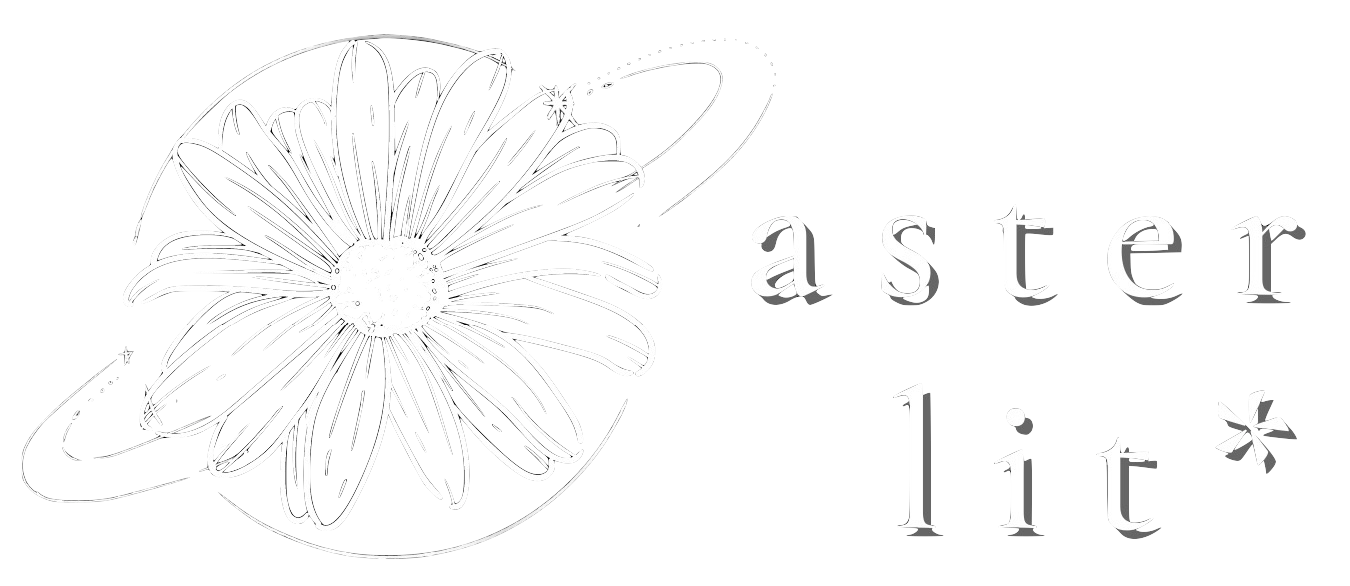
Aster Lit: translatability
Issue 12- Summer 2024
Q&A with Yen Valencia
Your repetition of "mahal" in the first and second paragraphs stands out. What do you hope the reader will take away from this repetition?
I hope that when the readers mutter the word mahal, it would roll on their tongue and take a shape of its own. That like language, they can create their own translation of love as well: to name love, to summon love, to act love, to let love.
To me, the strong vivid imagery of the word "mahal" created an idea of the concept as an unattainable thing to the point where it leads to a sense of intimidation and fear towards it. Do you think a fear of breaking or losing love makes it more valuable, or does it create a barrier to truly experiencing it?
When a store item is mahal, I hide it at the backmost part of a shelf and come back next time when I already have the money to buy it. I think love is not unattainable, though. To love, we do not need to become richer just so we could afford the things that seem like a privilege given at disposal for others. We only mold ourselves into people that are more and more of love—in our capacity to receive and give and feel it—than less of it.
Our way of loving is our little desperate attempts to translate love in our mother tongue and the languages we know. Do we put more value on love because we fear losing it, given the history of how many people had started and lost wars for the name of love? Yet despite and because of its history, we still love. That even after all, we are here free to love. Because we thrive better in a world full of it than one without.
We love better because we know how hollow the seeming absence of it once felt for us, and how it must have felt for those we love too. By loving is how we experience love, not fearing it. Fear only makes love a lip service, not a genuine prayer.
In your poem you reference the film Past Lives. How do you think the experiences and themes of the movie affected your piece?
Arthur’s sentiment in the film captured a nuance in language that I had wanted to explore for so long—an excerpt which mostly inspired me for this piece, because I had always wondered how people, of different mother tongues, come together to arrive on the same ground, and love the same love.
There’s a kind of longing in love that yearns to understand. And most of love, I think, is trying to understand one’s history and how they came to be who we love. Arthur, trying to learn Korean to understand Nora when she sleep-talks at night, is him trying to understand Nora not by secondhand translation for when they converse in English, but in a common ground that tends them both. It’s ‘I understand you’ on a level where understanding happens ever so naturally. Where they exchange hearts and not words alone. It doesn’t seek the hidden meanings. It doesn’t search for the underlying contexts. It just understands, without the duty to explain. And I think it soothes. That’s what I’m trying to write about, and even in this piece there’s just something on love & its translations that I think I missed to translate—but the heart is there, and you understand.

